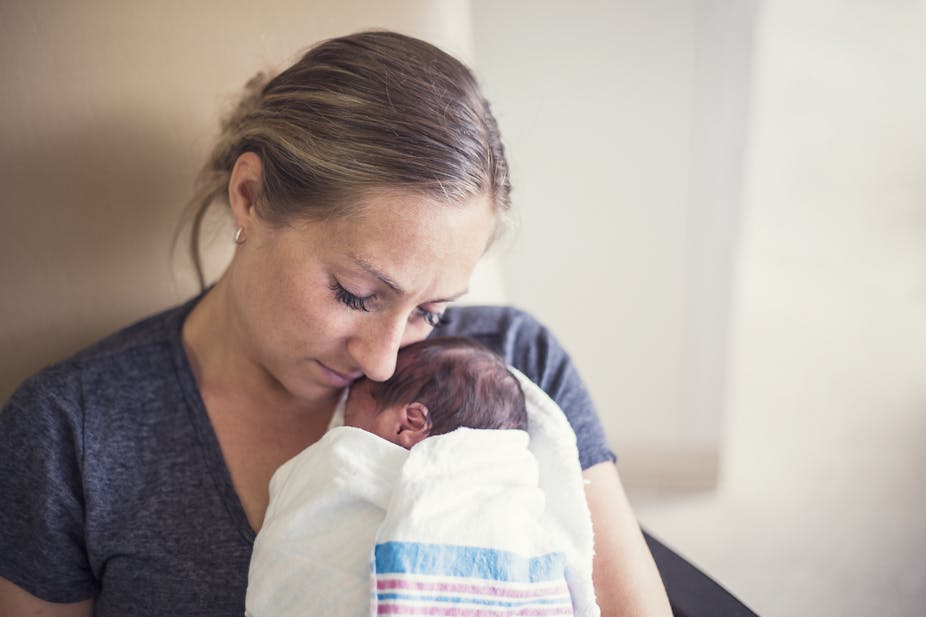Singing and playing music to your baby or young child may seem to be a no-brainer. We all have strong associations with nursery rhymes or childhood ditties sung to us by our parents and grandparents. We associate these with feelings of comfort and security, and it seems like the most natural thing in the world that we would sing to our own children as we cuddle and soothe them, or put them to bed.
Imagine, though, that your baby was born earlier than anticipated, and had to spend time in a neonatal unit in a hospital. Perhaps your baby also has serious medical issues and needs to be constantly monitored, being linked up to a frightening array of medical equipment. Hospital staff are constantly moving around the wards checking everything is OK, and there are alarms on ventilators going off, the hiss of oxygen and all sorts of electric lights flashing and beeping. It can’t be easy to bond with a baby when they are being kept in an incubator and need special medical treatment.
Although hospital staff are trained to support families in these situations, it’s often a very traumatic time for parents. Research into parental experiences in neonatal units shows that feelings of anxiety, guilt and even depression are all common features for many mums and dads. This can prevent or disrupt the natural bonding process that is so important to the healthy development of the baby, and the happiness of the family unit too.
Recent research has shown, however, that music therapy can offer a way for parents to connect with and develop their relationship with their premature baby while they are in hospital. This consists of a music therapist playing a guitar or other instruments, and singing with parents to their baby on the ward. Using melodies and lullabies that the parents choose – including favourite songs, gentle sounds and simple rhythmic structures – the baby can be soothed while parents hold, rock and, if they wish to, sing or hum to their baby.
Music therapy does more than just improve bonding. A large study undertaken in 2013 in the US demonstrated other positive effects for babies who receive music therapy in neonatal units. The study showed improved oxygen saturation, better heartbeat regulation, longer periods of sleep, increased weight gain, and, perhaps most importantly, reduced time spent in hospital. These results have been replicated in other studies too.
Soothing tones
So why is music therapy such a powerful tool for premature babies? Hearing develops from the age of 24 weeks, meaning that babies are accustomed to hearing their mother’s voice, and that of other family members while still inside the womb. They respond more readily to these voices than those of unknown adults, although even then they show a preference for live voices
In addition, researchers think that every baby is born hardwired, as it were, with what has been termed “communicative musicality”. Put simply, babies respond positively to, and have an appreciation of, simple musical structures, melodies and simple vocal sounds. We are all familiar with “baby talk” – the way we instinctively alter the tone of our voices when we talk to babies and young children. This is very calming and soothing for both baby and parent. It not only helps bonding, but lays down the foundations for later cognitive development such as speech and motor skills.
At present music therapy practice is commonly used in neonatal units across the world, including in Australia, the US, Scandinavia, Columbia, and Europe too. UK provision, however, is limited to just a few sites. But, my own preliminary research has found that more and more UK parents are keen to use these techniques, often commenting that “it will give me something to do with my baby”, and “it’s something normal and natural that I can do during this very unnatural beginning to our life together”.
I’ve also found that nurses are also supportive of music therapy. They believe helping parents to explore music with their babies will empower parents and give them the confidence they need to provide the extra attention premature babies require, such as special feeding techniques and potentially administering medication. Consultants are also aware that at the moment, psychological support for parents in neonatal facilities is limited. They believe that the introduction of music therapy will have an important impact on the quality of parental experiences in hospital and the health of the baby.
I am currently part of a team developing a pilot study in South Wales which will offer parents the chance to explore singing to their premature babies. It is hoped that this will be the beginning of an exciting new provision of psychological and medical support for parents and babies in neonatal units in Wales and beyond, but also help ensure these little ones have the best start at life possible.

